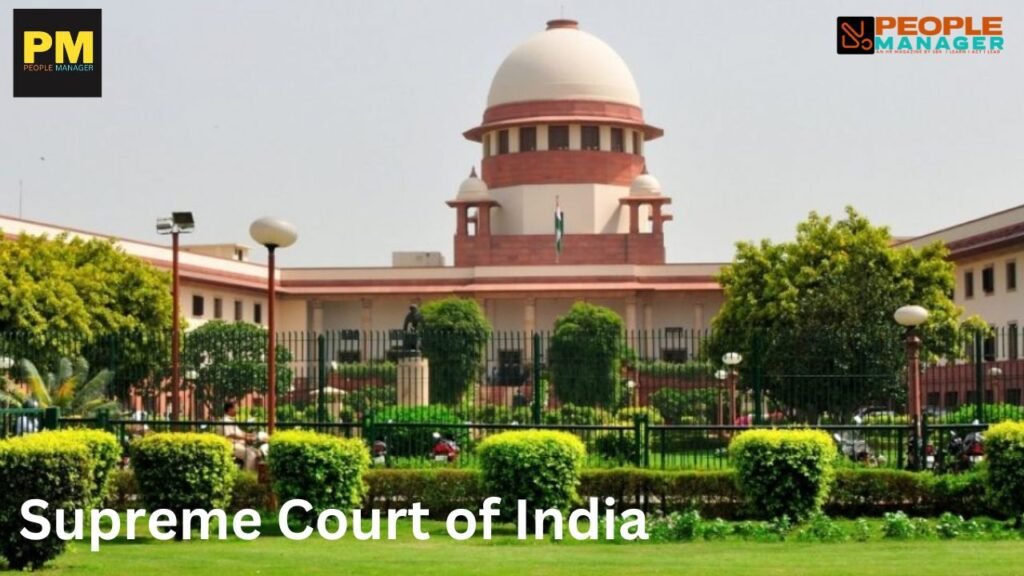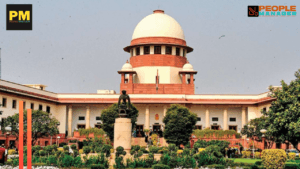Advocates can not claim right of legal representation under Industrial Disputes Act : Supreme court
The Supreme Court ruled in the case of ThyssenKrupp Industries India Private Limited & Ors v. Suresh Maruti Chougule & Ors that advocates do not have the right to legal counsel under the Industrial Dispute Act.

Advocates can not claim right of legal representation under the Industrial dispute act. The Supreme court held in the case of ThyssenKrupp Industries India Private Limited & Ors v. Suresh Maruti Chougule & Ors.
The Supreme Court has ruled that an Advocate does not have the right to legal counsel under the 1947 Industrial Disputes Act. A three-judge panel comprised of Justices Sanjay Kishan Kaul, CT Ravikumar, and Sudhanshu Dhulia answered a reference against the judgment, agreeing with the opinion expressed in Paradip Port Trust vs. Their Workmen (1977) 2 SCC 339.
The question before the bench was whether the provisions of the Industrial Disputes Act dealing with representation by either party through a specific lawyer and the limitations imposed on it should be reconsidered.
It is worth noting that, according to Section 36 of the Industrial Disputes Act, every worker who is a party to a dispute has the right to be represented by any member of a registered trade union. Section 36(4) of the Act states that a party to a dispute may be represented by a legal practitioner in any process before a labor Court or tribunal with the cooperation of the other parties to the proceeding and with the leave of the court before which they are appearing.
The Supreme Court clarified the application of this provision in Paradip Port Trust vs. Their Workmen (1977) 2 SCC 339, holding that legal practitioners who were officers of companies or corporations but were not actively practicing as advocates could still represent the entities in legal matters.
The decision underlined that a person’s status as a legal practitioner had no bearing on their eligibility to represent parties before the tribunal if they met the standards stipulated in Section 36 of the Act.
However, the judgment also noted that an Advocate could not assert the right to legal representation under Section 30 of the Advocates Act, 1961 when the subject was covered by the Industrial Disputes Act. Section 30 of the Act allows all advocates to practice in any Indian court or tribunal. It was contended in Paradip Port Trust that Section 30 therefore guaranteed every lawyer the right to practice “as of right” in all courts and before any tribunal.
The court, however, noted that Section 30 would not apply and highlighted that the Industrial Disputes Act was a particular statute focusing on labor welfare and representation before adjudicatory bodies. As a result, this particular legislation would take precedence over the Advocates legislation, a general statute governing the attendance of lawyers in various forums. The court followed the legal principle that “general laws do not derogate from special ones” and determined that the Advocates Act was unlikely to have any impact on the particular provisions of the Industrial Disputes Act.
Furthermore, the court emphasized that the restriction on employing a legal practitioner was put on the rights of the party engaged, not the rights of the legal practitioner. The court held that the essential issue in cases brought under the Industrial Disputes Act was the rights and constraints imposed on the parties (employers and workers), rather than the rights of legal practitioners. As a result, the necessity to address legal practitioners’ rights may not emerge in this setting.
The case of the Paradip Port Trust was later referred to a three-judge bench for reconsideration.
The Supreme Court upheld what was decided in Paradip Port Trust, saying: *We concur with the approach adopted in Paradip Port Trust, Paradip’s case (above). As previously stated, the problem is to be assessed from the perspective of the employer and workers, who are the primary contenders in an industrial dispute, as observed in the aforementioned ruling. We see no reason to rethink the well-established legal position that has been in place for nearly half a century.
The reference was answered accordingly
Value our content… contribute towards our growth. Even a small contribution a month would be of great help to us. Since our establishment, we have been serving the industry through daily news and updates.
Our content is free for all, and we plan to keep it that way.
Support People Manager. Pay Here (All it takes is a minute)
- Pernod Ricard India introduces Cheers VRorld, an industry-first VR-powered onboarding experience in the Alco-Bev sector - February 11, 2026
- Jio-bp Appoints Sareeta Bhatikar as Chief Human Resources Officer to Steer Next Phase of Growth - February 11, 2026
- India Keeps Hiring as Global Markets Slow: Michael Page India Salary Report-26 - February 6, 2026









